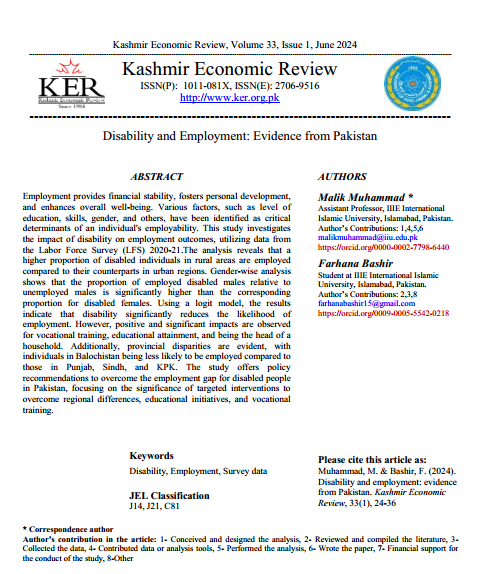Disability and Employment: Evidence from Pakistan
Main Article Content
Abstract
Employment provides financial stability, fosters personal development,
and enhances overall well-being. Various factors, such as level of
education, skills, gender, and others, have been identified as critical
determinants of an individual's employability. This study investigates
the impact of disability on employment outcomes, utilizing data from
the Labor Force Survey (LFS) 2020-21.The analysis reveals that a
higher proportion of disabled individuals in rural areas are employed
compared to their counterparts in urban regions. Gender-wise analysis
shows that the proportion of employed disabled males relative to
unemployed males is significantly higher than the corresponding
proportion for disabled females. Using a logit model, the results
indicate that disability significantly reduces the likelihood of
employment. However, positive and significant impacts are observed
for vocational training, educational attainment, and being the head of a
household. Additionally, provincial disparities are evident, with
individuals in Balochistan being less likely to be employed compared to
those in Punjab, Sindh, and KPK. The study offers policy
recommendations to overcome the employment gap for disabled people
in Pakistan, focusing on the significance of targeted interventions to
overcome regional differences, educational initiatives, and vocational
training.
Article Details

This work is licensed under a Creative Commons Attribution-ShareAlike 4.0 International License.

